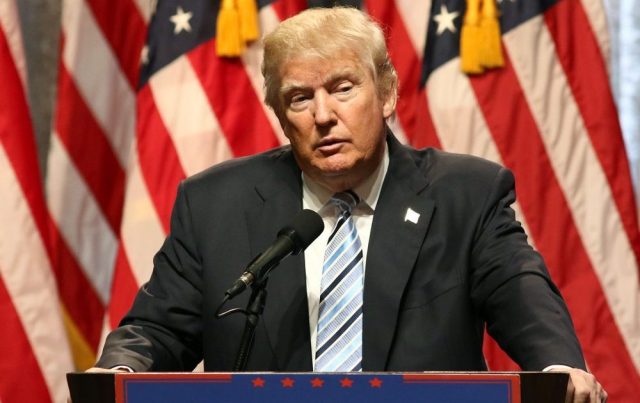 Two organizations have filed a complaint with the Federal Elections Commission against President Donald Trump, alleging that fundraising that his campaign conducted after November’s Election Day violated federal election law. The complaint, brought by the Campaign Legal Center and Common Cause, says that after the election, Trump’s campaign website still asked for contributions, citing an NBC News report that said that money raised after the election would go towards debt forgiveness, and that any money that exceeded a donor’s $2,700 maximum allowable contribution would go towards the 2020 primary campaign. However, the complaint states that according to records that covered up until November 28, 2016, Trump’s campaign had no debt. Nevertheless, those records showed that all of the money the campaign received after the election was reported as “2016 General Debt Retirement.” Records covering the rest of 2016 also showed that there was no debt, the complaint states.
Two organizations have filed a complaint with the Federal Elections Commission against President Donald Trump, alleging that fundraising that his campaign conducted after November’s Election Day violated federal election law. The complaint, brought by the Campaign Legal Center and Common Cause, says that after the election, Trump’s campaign website still asked for contributions, citing an NBC News report that said that money raised after the election would go towards debt forgiveness, and that any money that exceeded a donor’s $2,700 maximum allowable contribution would go towards the 2020 primary campaign. However, the complaint states that according to records that covered up until November 28, 2016, Trump’s campaign had no debt. Nevertheless, those records showed that all of the money the campaign received after the election was reported as “2016 General Debt Retirement.” Records covering the rest of 2016 also showed that there was no debt, the complaint states.
So what does this mean? It means that Trump accepted post-election donations, claiming they were going towards nonexistent debts, when that money should have automatically gone towards the next election or been refunded to the donors, according to election regulations. Since there was no debt, the money is likely going towards 2020. The problem is that because that money was allegedly marked under the 2016 campaign, if undetected it would allow those same donors to give again to the 2020 campaign, potentially exceeding their legal contribution limits.
For example, if a person gave their maximum $2,700 thinking it was going towards debt relief, and Trump marked it as such, they might then donate again for the 2020 campaign, even though that first donation should have maxed them out. As Larry Noble from the Campaign Legal Center explained in a statement obtained by LawNewz.com, “By falsely reporting post-election contributions as being for 2016 debt retirement, Trump may be trying to illegally double what a contributor can give for the 2020 primaries.”
The complaint also alleges that Trump took too long to register a campaign committee for 2020. Once a person raises more than $5,000 towards an election, they are considered a “candidate.” A candidate then has 15 days to register their campaign committee. Trump allegedly took more than two months after achieving candidate status, not registering his committee until Inauguration Day.
[Image via Shutterstock]